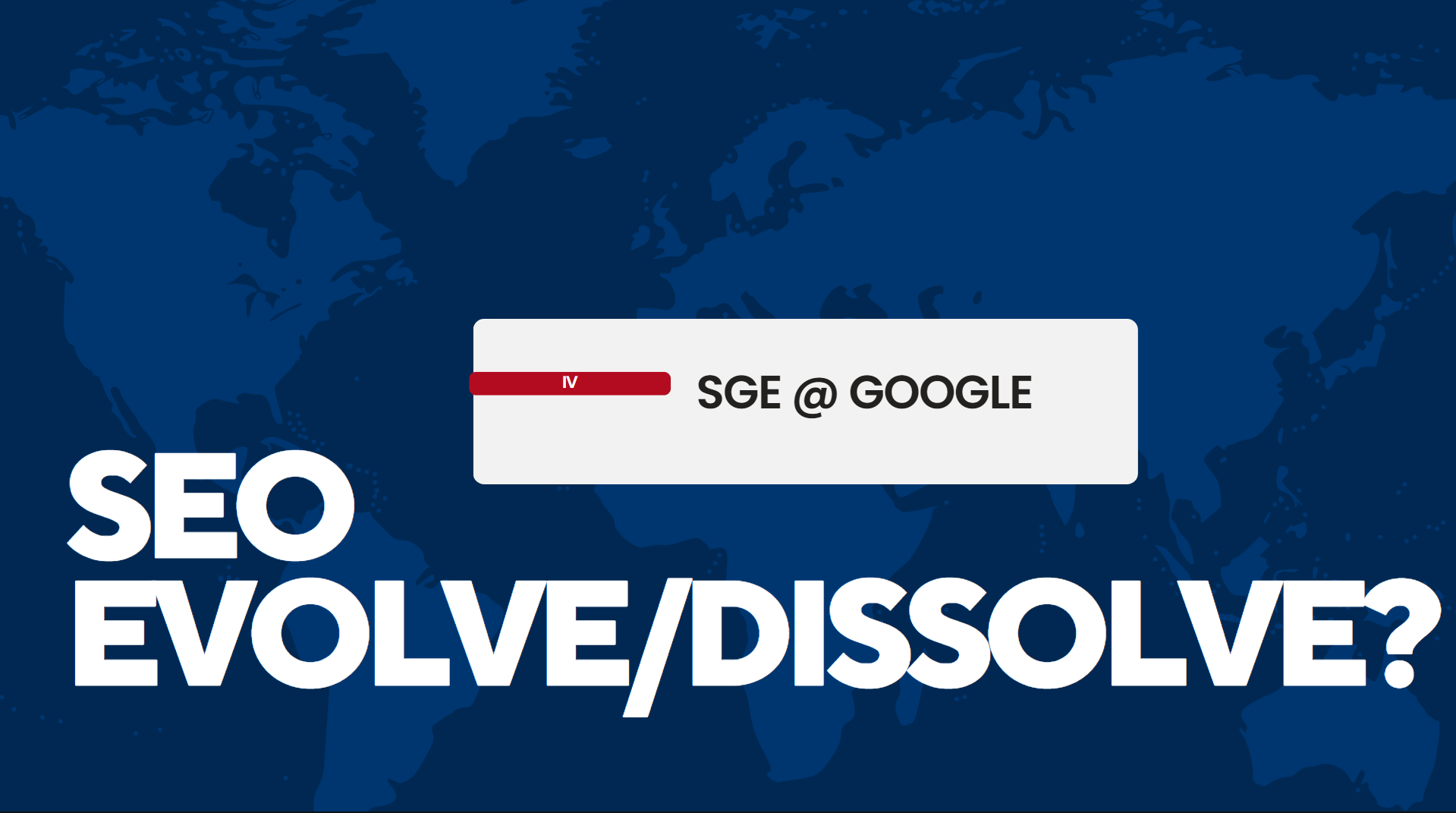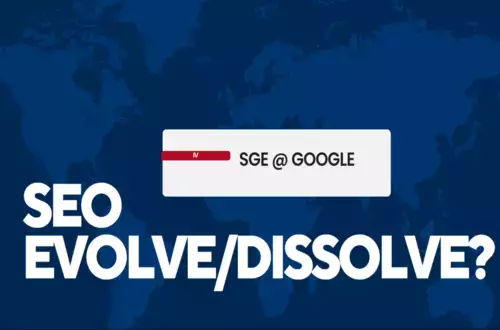From the aftermath of the Gemini AI controversy to introducing Search Generative Experience (SGE) at I/O 2024, Google has been pulling up its socks. SGE is shifting the paradigm from keyword density to understanding the context and intent of searches. But what does this mean for organic traffic and SEO strategies?
Our latest 2-minute read explores whether SEO will evolve or dissolve if it runs in parallel with SGE. We're dissecting the potential impacts on organic traffic, click-through rates, and how digital marketing strategies must adapt in a world where answers are served directly on the SERP.
Stay ahead of the curve and discover what these developments could mean for your digital strategy. Read more (Link)

Will SEO Evolve or Dissolve in Parallel With SGE?
A while ago, Google caught some flack because of the Gemini AI controversy, where some of the tech giant’s own employees were reported labeling the chatbot as “worse than useless”. (source).
Cut to May now and Google I/O 2024 happened two days ago where “AI overviews” in search were being rolled out for US users as SGE: Search Generative Experience.
And it’s happening within a week.
Up until now, search has been working on keyword matches and ranking algorithms. Search Generative Experience is built to create a response based on the context and semantics of your query. It focuses on three key aspects that every single technology company is working towards:
- Dynamicity
- Personalization
- Interaction
The discourse has already fueled memes, threads, and arguments on popular opinion sites on how SEO will evolve. This is exactly how last year coders were depressed when they realized some of their own in Silicon Valley had built something non-human that could code!
Things evolve. SEO is no different. Here is our reasoning on whether SEO Will Evolve or Dissolve In Parallel With SGE.
Evolve: Shift from Keyword Density to Context and Intent
SEO strategies will need to focus more on understanding the intent and context behind searches rather than just keyword density. In-depth keyword research will be needed to identify user intent behind queries beyond just search volumes.
Google will now be using advanced natural language processing and machine learning to decipher the true meaning and context behind a search query, rather than just matching keywords.
So if you want to land on Google’s front page you have to sweat it out by creating comprehensive, high-quality content that thoroughly answers the user’s query from all angles. Moreover leveraging schema markup, entity associations, and other structured data to explicitly convey context is more important than ever before.
Analytics will be a game changer now and analyzing search behavior and SERP features to continually refine an intent-based content strategy is the only way to evolve.
Dissolve: Reduced Organic Traffic
As SGE provides comprehensive answers directly on the SERP, users may have less need to click through to individual websites, potentially reducing organic traffic
You see, the core premise of SGE is to give you in-depth answers directly on the search engine results page (SERP) by collating information from multiple sources across the internet. When SGE becomes common, an AI-generated summary will fully address the user's query without them needing to click through to different websites.
It could impact organic traffic in the following ways:
- Reduced Click-Through Rates (CTRs): If SGE provides detailed answers directly within the search results, users will have less incentive to click through to the organic website listings below. This could lead to a significant drop in click-through rates from organic searches. This also holds true when the user’s informational queries are satisfied right at the top.
- Zero-Click Searches: SGE answers encourage more "zero-click" searches, where users get their query answered on the SERP itself without clicking any links. Basically, SGE is designed to reduce clicks. So, in a way, you are running on a treadmill that’s designed to make you not run.
- Reduced Traffic for Certain Verticals: Some industries like health, travel, recipes, etc. that rely heavily on providing informational content may be impacted more by SGE's ability to directly answer queries in those verticals.
- Prioritizing Comprehensive Answers: Websites that provide brief, surface-level information may get deprioritized compared to sources that SGE pulls more comprehensive answers from to construct its summaries.
All-in-all, it’s too early to comment on which side the scale tips. It’s like the elections all over the world. Up until the results are out, do you really know?
As a digital marketing company, we are gearing up for both outcomes and will talk more about how we are doing it, in our next blog, till then, stay tuned!








